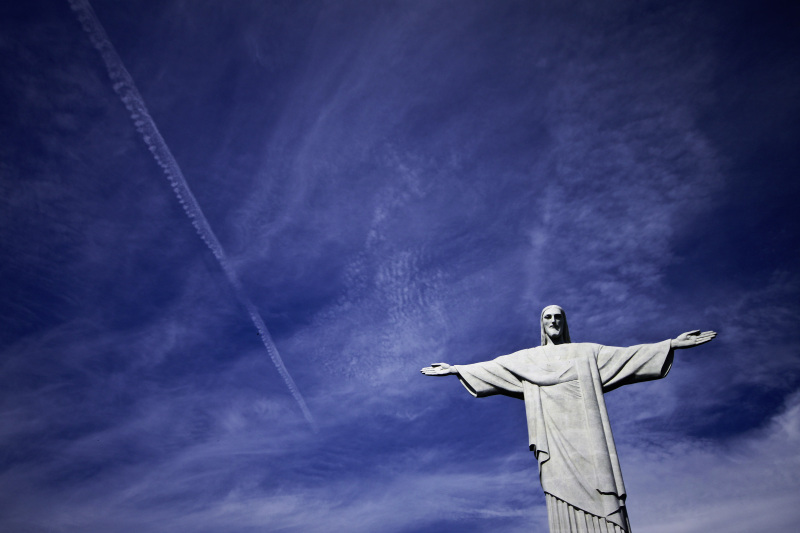Rio de Janeiro, Brazil (21 June 2012) – With negotiations at an end, WWF Director General Jim Leape today issued the following closing statement about the Rio+20 summit:
“This was a conference about life: about future generations; about the forests, oceans, rivers and lakes that we all depend on for our food, water and energy. It was a conference to address the pressing challenge of building a future that can sustain us.
“Unfortunately, the world leaders who gathered here lost sight of that urgent purpose.
“With too few countries prepared to press for action, Brazilian President Dilma Rousseff chose to drive a process with no serious content – to the planet’s detriment.
“The result is a squandered opportunity – an agreement that does not set the world on a path toward sustainable development.
“The urgency to act, however, has not changed. And the good news is that sustainable development is a plant that has taken root; it will grow regardless of weak political leadership here. We did see leaders stepping up in Rio, it was just not in the negotiations.
“There is exciting leadership happening in communities, cities, governments and companies that are laying the foundation to protect our environment, alleviate poverty, and move us toward a more sustainable planet.”
“In the end, we need action everywhere—from individuals, villages, cities, countries, small and large companies, and civil society organizations and movements. We need to all take the responsibility world leaders failed to act on in Rio.
“We must all redouble our efforts and hope that in time they help to open up the political space for a multilateral process like Rio+20 to deliver.
Some of the big commitments made outside the negotiating room in Rio included:
- Governments, banks, investors and CEOs back calls for valuing and accounting for natural capital. -nine banks, investors and insurers insurers (incl Caixa Economica Federal, Caisse des Depots, China Merchants Bank, Natural Australia Bank, Standard Chartered + 50 countries Botswana, South Africa, UK + corps Unilever, Puma, Dow Chemical) made a collective call for natural capital valuation and accounting at Rio+20 with the Natural Capital Declaration.
- Mozambique – President Armando Guebuza of Mozambique announced the launch of Mozambique’s Roadmap to a Green Economy. The plan covers national strategies to apply green economy principles to the development of cities, agriculture, and energy sources, and to invest in maintaining and enhancing their natural capital, including a fully representative terrestrial and marine multi-use protected area network. The plan will be developed and implemented in collaboration with key partners around the world, such as the host government of the conference, Brazil. ·
- The Maldives announced world’s biggest marine reserve. The Maldives has used the Rio+20 UN Conference on Sustainable Development in Brazil to announce that all 1,192 of its islands will become a marine reserve by 2017.
- The UK government announced that the UK will be the first country in the world to force major companies to measure their carbon footprint. The scheme will make more than 1,000 companies measure their greenhouse gas emissions in full.
- Indonesia’s president made broad commitments to achieve a “sustainable future” in Indonesia. Financial and policy, institutional strengthening, and south-south cooperation from major tropical forest nations were key themes.
- Eight of the world’s biggest development banks announced a fundamental investment shift from roads to public transport, under a USD$175 billion initiative to promote buses, trains and cycle lanes. This was the largest monetary commitment made during Rio+20 to sustainable development.
What WWF wanted out of Rio+20 and what we commit to fight for:
Sustainable Development Goals – These goals must be an evolution of the Millennium Development Goals and should name thematic areas such as food, water, energy and oceans goals and set up the process to create them, fund them and measure them.
To value natural wealth – The world still needs indicators to measure the quality of the environment, nature, and biodiversity and ecosystems alongside their existing economic (GDP) and social (IHDI) indicators.
Subsidy reform: Transparent annual reporting and review on subsidy reforms leading to the elimination of by 2020 of all environmentally harmful subsidies, in particular fossil fuel subsidies, should be a global priority.
Ocean governance: Some progress was made in Rio on this issue, but we still need better ocean governance, including addressing the conservation and sustainable use of the high seas, outside of national boundaries.
A stronger UN Environment Programme: Strengthening UNEP should be a priority, with the funding and authority to properly protect the world’s environment.














